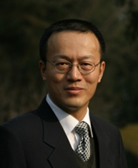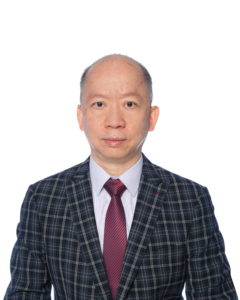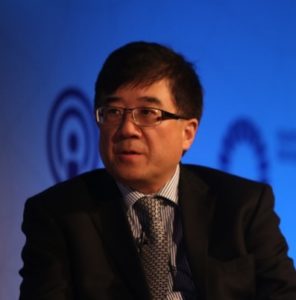Biography: Raymond W. Yeung is a Choh-Ming Li Professor of Information Engineering at The Chinese University of Hong Kong (CUHK). He received his B.S., M.Eng., and PhD degrees from Cornell University in Electrical Engineering in 1984, 1985, and 1988, respectively. Before joining CUHK in 1991, he was a Member of Technical Staff at AT&T Bell Laboratories. A co-founder of the field of network coding, he has been serving as Co-Director of the Institute of Network Coding at CUHK since 2010. He is the author of the books A First Course in Information Theory (Kluwer Academic/Plenum Publishers, 2002) and Information Theory and Network Coding (Springer 2008), which have been adopted by over 100 institutions around the world. In spring 2014, he gave the first MOOC in the world on information theory that reached over 60,000 students. He is a recipient of the 2005 IEEE Information Theory Society Paper Award, the Friedrich Wilhelm Bessel Research Award from the Alexander von Humboldt Foundation in 2007, the 2016 IEEE Eric E. Sumner Award, the 2018 ACM SIGMOBILE Test-of-Time Paper Award for his seminal paper on network coding published in 2000, the 2021 IEEE Richard W. Hamming Medal, and the 2022 Claude E. Shannon Award. In 2015, he was named an Outstanding Overseas Chinese Information Theorist by the China Information Theory Society. He is a Fellow of the IEEE, Hong Kong Academy of Engineering Sciences, and Hong Kong Institution of Engineers.
Biography: Prof. Teng Long is the Vice President of Beijing Institute of Technology (BIT). He is a full professor and a doctoral supervisor of the School of Information and Electronics of BIT. His research interests include the novel radar system and signal processing.He is an Academician of the Chinese Academy of Engineering, a foreign member of the Russian Academy of Engineering, and a corresponding member of the International Academy of Astronautics. He is a fellow of the Institute of Electrical and Electronics Engineers (IEEE), a fellow of the Institution of Engineering and Technology (IET), and a fellow of the Chinese Institute of Electronics (CIE).He won the National Medal for Innovation of China, the Science and Technology Awards Prize of Ho Leung Ho Lee Foundation, Distinguished Leadership Award of IEEE Technical Committee on Cyber-Physical Systems, and Award of Top Ten Outstanding Youth of Beijing.He is the Vice Chairman of the Chinese Institute of Command and Control, the Executive Director of CIE, the Executive Director of China Instrument and Control Society, the President of Signal Processing Society of CIE, and the President of International Cooperation Committee of CIE.He has been a member of the Evaluation Committee of Academic Degrees of the State Council since 2015. He is a Yangtze River Scholar Distinguished Professor, Chief Scientist of National Basic Research Program of China, and Chief Scientist of National High Technology Research and Development Program of China. He won the Distinguished Young Scholar Fund by the National Natural Science Foundation of China.He published 3 academic books and over 130 SCI-indexed academic papers. He has been authorized more than 50 invention patents as the major inventor. He received 2 Second Prize of National Technological Invention Award (ranked first), 1 Grand Prize of Ministerial Award (ranked first), and a total of 8 other level awards of Ministerial Awards.He founded IET International Radar Conference and IEEE International Conference on Signal, Information and Data Processing. He was also invited to give an editorial in the journal of IET Radar, Sonar and Navigation in 2018, and this is the first time for Chinese scholars. He was invited to give keynote speeches in international conferences several times.
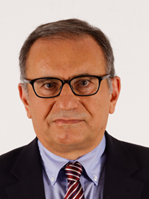
Biography: Erdal Arıkan has been a member of the facuty at the Electrical-Electronics Engineering Department, Bilkent University, Ankara, Turkey since 1987. He received his Ph.D. degree from the Massachusetts Institute of Technology, Cambridge, MA, in 1985. His main research interests are in error correction coding. For his work on polar coding, he was awarded the 2010 IEEE Information Theory Society Best Paper Award, the 2013 IEEE W. R. G. Baker Award, the 2018 IEEE Hamming Medal, and the 2019 Shannon Speaker award. He is an IEEE Fellow and a member of the Turkish Academy of Sciences.
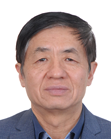
Biography: Hongke Zhang, IEEE Fellow, received the M.S. and Ph.D. degrees in electrical and communication systems from the University of Electronic Science and Technology of China, Chengdu, China, in 1988 and 1992, respectively. He is currently a Professor with the School of Electronic and Information Engineering, Beijing Jiaotong University, the Director of a National Engineering Lab on Next Generation Internet Technologies. He is also with the Department of New Networks, Peng Cheng Laboratory, Shenzhen, China. His research has resulted in many papers, books, patents, systems, and equipment in the areas of communications and computer networks. He has won two national technological invention of China and has authored of more than ten books and the holder of more than 100 patents. Prof. Zhang is the Chief Scientist of a National Basic Research Program of China (973 Program) and the Fellow of Chinese Academy of Engineering (CAE).
Biography: Kwai Man Luk is a Fellow of the Royal Academy of Engineering and the Hong Kong Academy of Engineering Science. He served as Head of Department of Electronic Engineering from 2004 – 2010 and Director of State Key Laboratory of Millimeter Waves from 2008 – 2013, at City University of Hong Kong. As a world authority in antenna research, he has published 4 books and 680 papers and delivered 80 invited talks. He was awarded 16 US and 10 PRC patents on novel antenna designs. He received the 2011 State Technological Invention Award (2nd Honor) of China, the 2017 IEEE Antennas and Propagation Society John Kraus Antenna Award, and the 2019 Ho Leung Ho Lee Prize for Science and Technology Progress.
Biography: Dr. Wen Tong is the CTO, Huawei Wireless. He is the head of Huawei wireless research. In 2011, Dr. Tong was appointed the Head of Communications Technologies Labs of Huawei, currently, he is the Huawei 5G chief scientist and led Huawei’s 10-year-long 5G wireless technologies research and development. Prior to joining Huawei in 2009, Dr. Tong was the Nortel Fellow and head of the Network Technology Labs at Nortel. He joined the Wireless Technology Labs at Bell Northern Research in 1995 in Canada. Dr. Tong is the industry recognized leader in invention of advanced wireless technologies, Dr. Tong was elected as a Huawei Fellow and an IEEE Fellow. He was the recipient of IEEE Communications Society Industry Innovation Award in 2014, and IEEE Communications Society Distinguished Industry Leader Award for “pioneering technical contributions and leadership in the mobile communications industry and innovation in 5G mobile communications technology” in 2018. He is also the recipient of R.A. Fessenden Medal. For the past three decades, he had pioneered fundamental technologies from 1G to 5G wireless and Wi-Fi with more than 510 awarded US patents. Dr. Tong is a Fellow of Canadian Academy of Engineering, and he serves as Board of Director of Wi-Fi Alliance.




